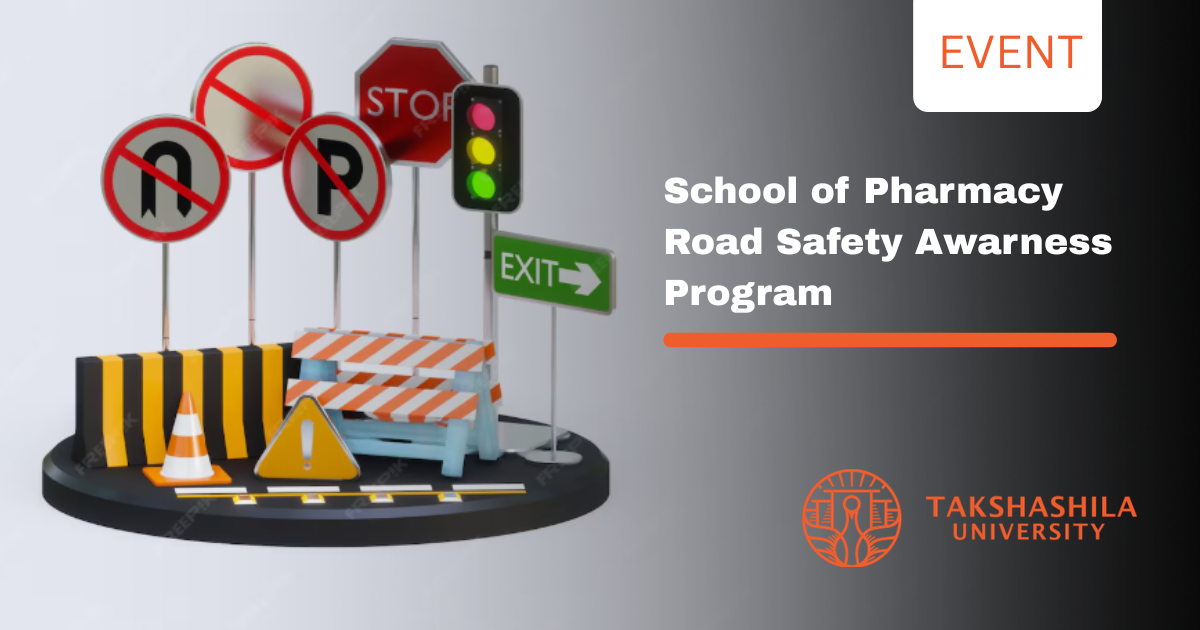Are you at the crossroads of two incredible and demanding career paths, ECE (Electronics and Communication Engineering) and CSE (Computer Science Engineering)? You are not alone! Countless students like you are standing at the intersection of technology, innovation and limitless possibilities, trying to choose ECE or CSE.
This blog will discuss the ECE and CSE fields overview, the differences, career opportunities, and benefits. Let’s get started and find out if you are a coding wizard or a gene of electronics and communication.
ECE or CSE
ECE focuses on electronics, communication systems and signal processing. It emphasises designing and developing electronic devices, such as circuits, microprocessors, and integrated circuits. From smartphones to smart homes, ECE graduates will learn about the wireless communication network that connects us all.
CSE focuses on computer science principles, software development and computing. It involves designing, implementing and analysing algorithms, data structures and software systems. From video games to artificial intelligence, CSE graduates will learn about revolutionising industries with their coding expertise.
Enrol in ECE or CSE courses at Takshashila University, and welcome limitless opportunities!
The Primary Differences Between ECE And CSE
Here’re the vital differences between ECE and CSE for students understanding.
| Categories | ECE | CSE |
|---|---|---|
| Focus | ECE is hardware-oriented | CSE is software-oriented |
| Emphasises | ECE is the study of electronics, communication systems, and signal processing | CSE is the study of software development, algorithms, and problem-solving |
| Scope | ECE designs and develops electronic devices, such as circuits and communication systems | CSE designs and implements software systems, algorithms and data structures |
| Vital Skills | The crucial skills ECE graduates should possess are the knowledge in – Circuit Design – Signal Processing – Communication Protocols | The essential abilities CSE graduates should have are the knowledge in – Programming Languages – Algorithmic Thinking – Software Development |
| Focus of Mathematics | ECE curriculum includes applied mathematics and physics | CSE curriculum includes discrete mathematics and algorithms |
| Core Subjects | Here’re the core subjects of ECE – Circuit Theory and Networks – Signals and Systems – Electronic Devices and Circuits – Digital Electronics – Electromagnetic Fields and Waves | Here’re the core subjects of CSE – Data Structures and Algorithms – Operating Systems – Database Management Systems – Computer Networks – Web Technologies |
| Technology Trends | Here’re the technological trends in ECE – Internet of Things (IoT) – Edge Computing – Robotics and Automation – Renewable Energy – 5G and Beyond | Here’re the technological trends in CSE – Artificial Intelligence (AI) – Machine Learning (ML) – Cloud Computing – Big Data Analytics – Augmented Reality (AR) – Virtual Reality (VR) |
Industry Demands | Here’re industry demands for ECE – Telecommunications – Embedded Systems – Semiconductor Industry – Power and Energy – Defence and Aerospace | Here’re industry demands for CSE – Software Development – Data Science and Analytics – Artificial Intelligence (AL) & Machine Learning (ML) – Cyber Security – Web Development and E-commerce |
Exploring Career Opportunities In ECE And CSE
1. Career Options

Before you choose ECE vs CSE, here’re some of the respective job roles you need to know about.
| ECE | CSE |
|---|---|
| Here’re some of the respective job roles you need to know about. 1. Power Systems Engineer 2. Telecommunications 3. Electronics Engineer 4. Control Systems Engineer 5. Embedded Systems Engineer | Here’re some of the respective job roles you need to know about. 1. Software Engineer 2. Web Developer 3. Data Scientist 4. Artificial Intelligence Engineer 5. Cybersecurity Analyst |
2. Interdisciplinary Opportunities

ECE and CSE professionals can closely work with experts in robotics, automation specialists, biomedical engineers and renewable energy specialists to develop advanced robotic systems, design and implement automated systems, develop medical devices, imaging systems and healthcare technologies, optimise electrical systems and contribute to IoT projects.
3. Advanced Studies And Research

| ECE | CSE |
|---|---|
| ECE graduates can pursue Master’s and PhD programmes and specialise in the specific areas of ECE. They work on cutting-edge research projects, collaborate with renowned researchers and access state-of-the-art equipment and resources. They also engage in research and development (R&D) activities. ECE graduates conduct extensive research in areas such as national security, communication systems, and defense technologies. They develop advanced systems and address crucial challenges in the ECE domains. | CSE graduates can do Master’s and PhD programmes and specialise in specific areas of CSE. They can opt for artificial intelligence, data science, cyber security, software engineering, etc., and conduct in-depth research in their chosen fields. They also engage in industrial research and development (R&D). CSE professionals contribute to developing secure systems and addressing the technological challenges in the CSE domains. They work with government agencies and defense organisations in areas such as cybersecurity, data analytics, and artificial intelligence. |
4. Entrepreneurship And Innovation

| ECE | CSE |
|---|---|
| ECE professionals can – Start their technology-focused ventures – Develop innovative products, solutions or services in areas such as renewable energy, IoT, robotics, or smart systems – Get involved in the entire product development lifecycle – Establish consulting firms that offer specialised expertise in energy systems, telecommunications, embedded systems, etc. | The CSE professionals can create and develop – Tech Start-ups – Software-as-a-Service (SaaS) – Tech Consulting and Services – App and Game Development – Machine Learning and AI solutions – Collaborative Platforms and Marketplaces |
5. Salary Prospects

| ECE | CSE |
|---|---|
| In India, the salary prospects of ECE professionals are given as follows. – Freshers: INR 3 to 6 lakhs per annum – Experienced professionals: INR 5 to 10 lakhs per annum – Mid-senior to senior professionals: INR 10 to 20 lakhs per annum – Leadership roles: INR 20 lakhs+ per annum | In India, the salary prospects of CSE professionals are given as follows. – Freshers: INR 3 to 8 lakhs per annum – Experienced professionals: INR 6 to 15 lakhs per annum – Mid-senior to senior professionals: INR 12 to 25 lakhs per annum – Leadership roles: INR 25 lakhs+ per annum |
It is necessary to note that the pay scale varies depending on factors such as industry domain, location, company size, skills, years of experience, etc.
Here’re the factors to consider before making an informed decision of choosing between ECE and CSE.
6. Personal Interests

| ECE | CSE |
|---|---|
| If you are interested in electronics, electrical systems and power distribution, and hardware components such as circuits, chips, and devices excite you, then you are apt to choose ECE. | If you are interested in programming, software development and algorithms and are enticed by the potential of AI, ML, data analysis and computer systems, you are likely to fit better into the CSE field. |
7. Career Goals

| ECE | CSE |
|---|---|
| If you want to work in telecommunications, power systems, automotive, aerospace and renewable energy, ECE is a suitable choice. | If you are interested in working in software development, web development, database administration, cybersecurity, data analysis or artificial intelligence, CSE is a suitable choice. |
8. Aptitude

| ECE | CSE |
|---|---|
| If you are strong in mathematics, physics and problem-solving, you will enjoy working with hardware components, understanding electrical principles and troubleshooting complex systems. | If you have strong logical thinking abilities and problem-solving aptitude, you will enjoy coding, designing algorithms, and software development. |
Making An Informed Decision
After analysing the pros and cons of ECE and CSE programmes and considering the factors, you can make an informed decision to help your career’s success. Here’s the checklist to tick to ensure you have chosen the suitable path for yourself.
- Will this programme suit my long-term career goals?
- Will this programme align with my interests, capabilities, and abilities?
- Is there room for advancement and career chances in this programme?
- Is this programme beneficial to my professional and personal development?
- Am I interested in pursuing this course at any cost and accepting the adversities as a step towards success?
Take Your First Step Towards A Successful Career With Takshashila University!
Takshahsila University is one of the best institutes in India, sprawled across 150 acres. It offers 64+ undergraduate, postgraduate, and doctorate programmes. Engineering, arts and sciences, agricultural sciences, physiotherapy, allied health sciences, and hotel management are among the departments.
It offers academic and athletic scholarships to students and guarantees 100% campus placement. Takshashila University ensures students get placed in their last year of college through extensive industrial partnerships. Wipro, IBM, Zoho, TCS, Accenture, and others are among their regular campus recruiters.
The skilled faculty and outstanding management team foresee developing tomorrow’s change agents and world leaders. Their hands-on training method gives students real-world work experience to handle real work challenges.
Takshashila University is an ideal institute for students to kick-start their successful career journey!
Conclusion
Consider your career aspirations and goal when deciding between ECE and CSE. Both fields offer incredible opportunities for growth, fulfilment and accomplishment. If you need clarification about whether I should choose ECE or CSE, select the one that aligns with your interests, passion and strength
If you could relate yourself more to the world of electronic devices, their communication systems and cutting-edge technologies, opt for the former and the latter if you are interested in software development and computer algorithms. Shape the world with your brilliance by enrolling at Takshashila University!
Frequently Asked Questions(FAQs)
1. Is ECE harder than CSE?
The difficulty level of ECE and CSE depends on an individual’s strengths and interests, so it is subjective. ECE is generally considered challenging because it involves more technical concepts related to electronics and communication systems, whereas, in contrast, CSE focuses on computer algorithms and software development.
2. Is coding taught in ECE?
Though ECE requires coding, it may not be as extensive as needed in CSE. The ECE curriculum includes programming languages such as C, C++, MATLAB, etc., to focus on electronics and communication systems applications.
3. Is there scope for ECE in future?
The scope of ECE is demanding, promising and rewarding. Emerging fields such as telecommunications, the Internet of Things (IoT), AI and renewable energy create a welcoming future for ECE graduates by allowing them to contribute and innovate.
4. What are the job profiles for ECE graduates?
Here’re some job profiles for ECE graduates, Electronics Engineer, Communication Engineer, RF Engineer, Telecommunications Engineer, Embedded Systems Engineer, Network Engineer, Control Systems Engineer, Signal Processing Engineer, VLSI Design Engineer, Hardware Engineer, etc.
5. What is the difference between ECE and CSE?
ECE emphasises electronic devices, communication systems, and signal processing. In contrast, CSE focuses on software development, algorithms, and computing. ECE deals with circuit design and electromagnetic fields, whereas CSE deals with programming languages and data structures.






